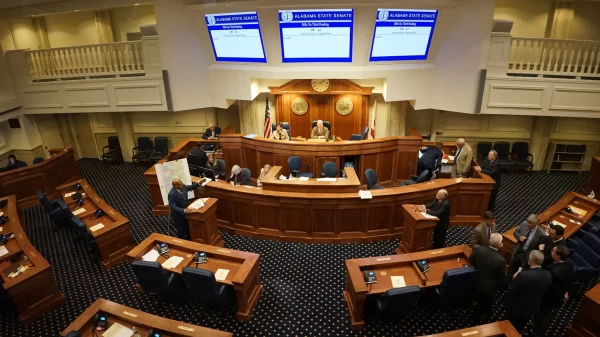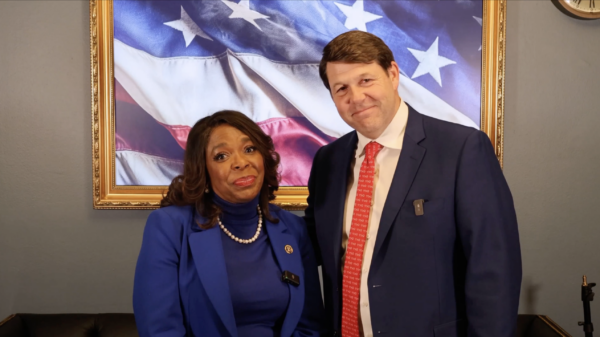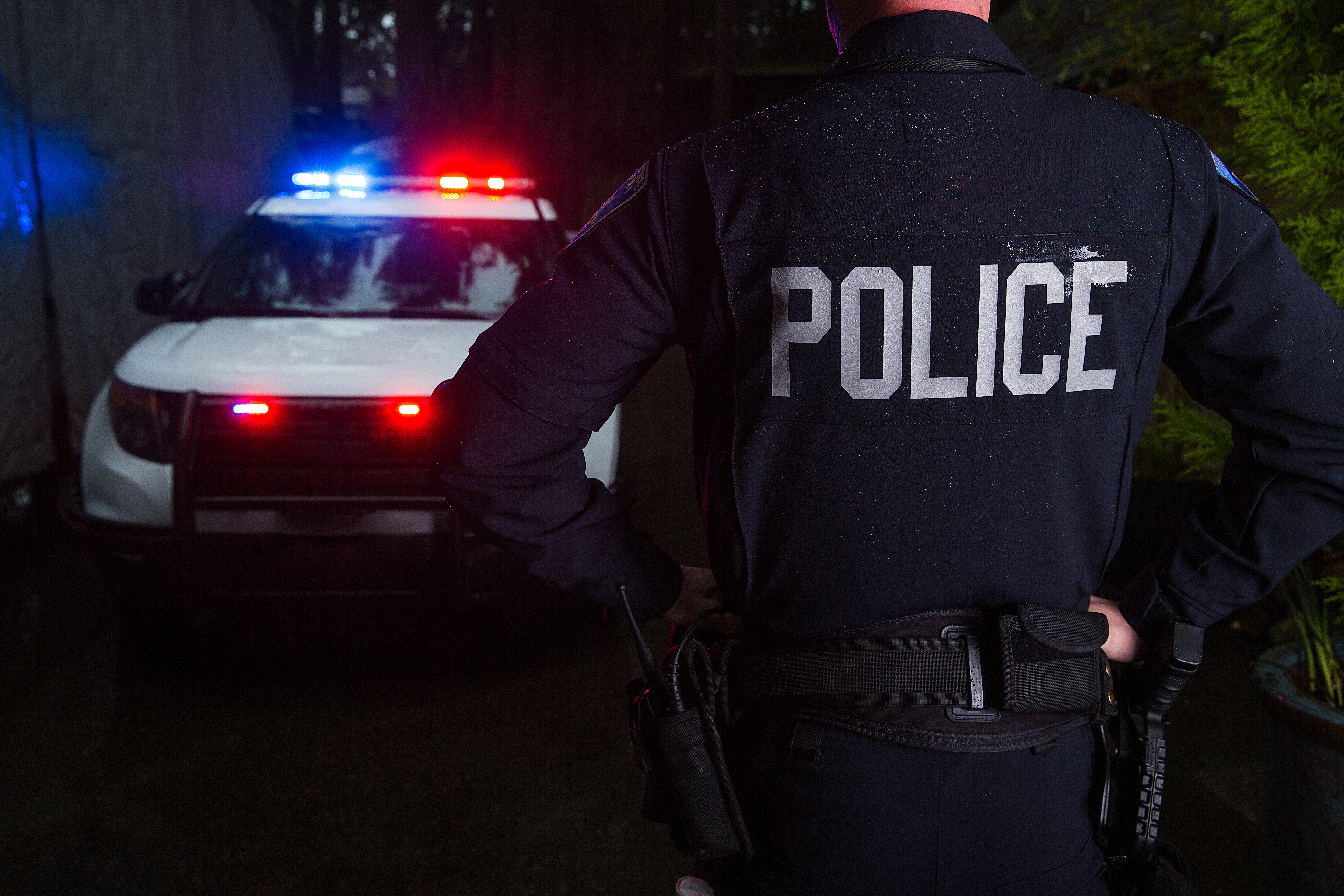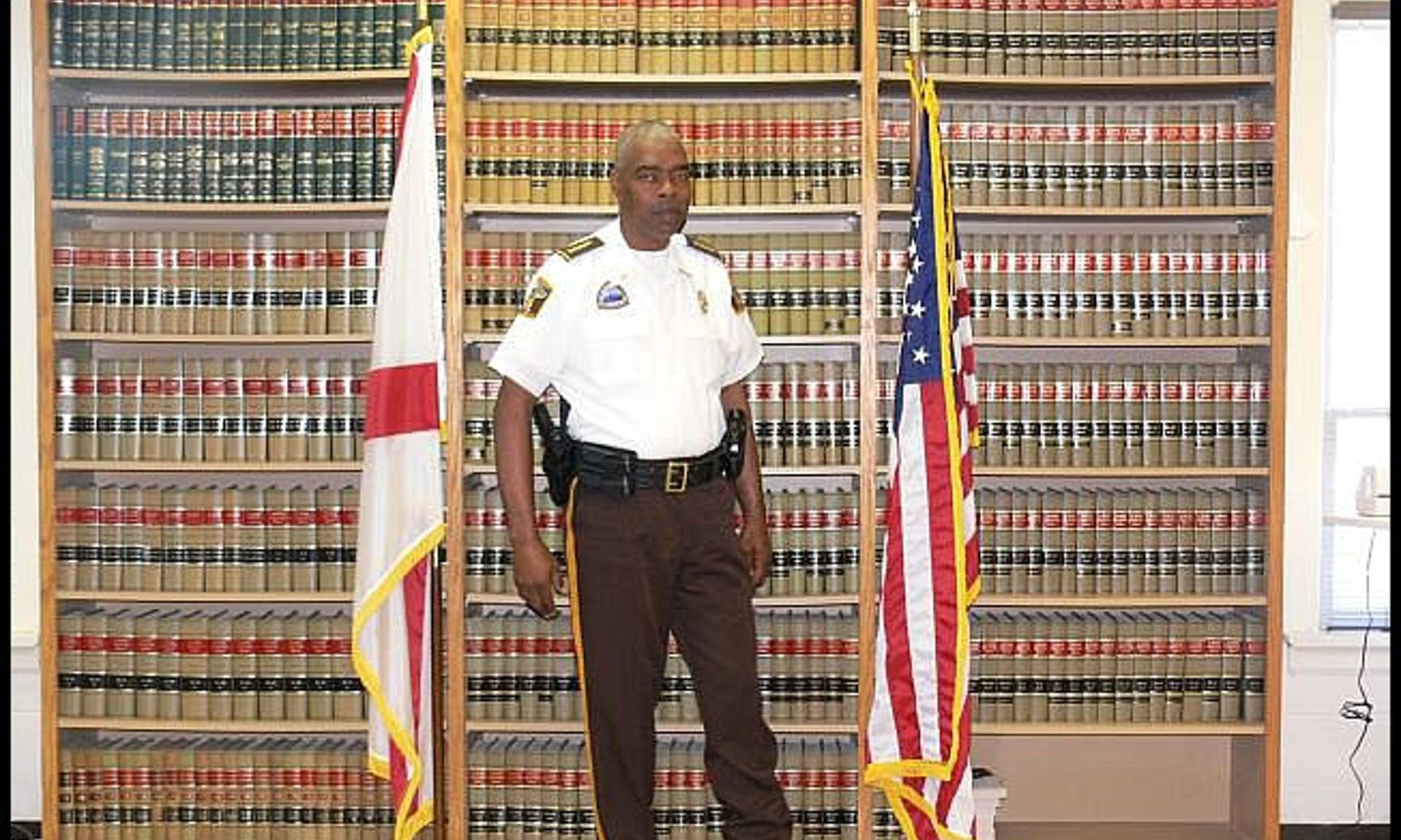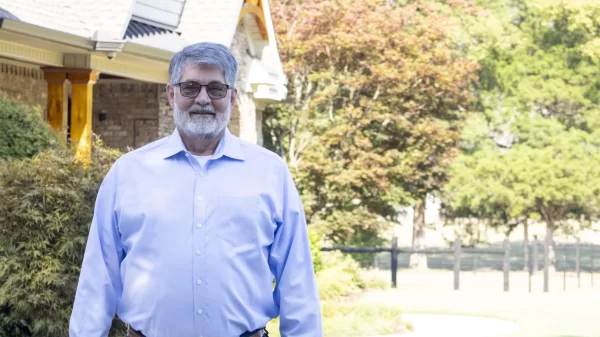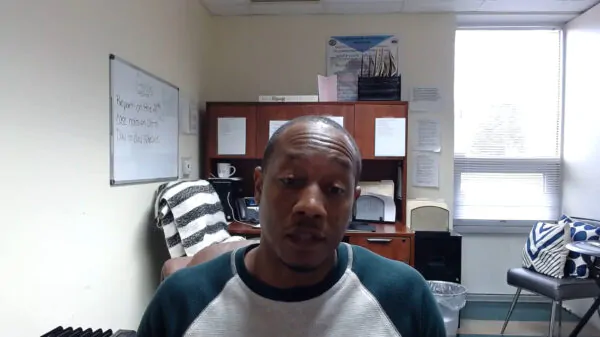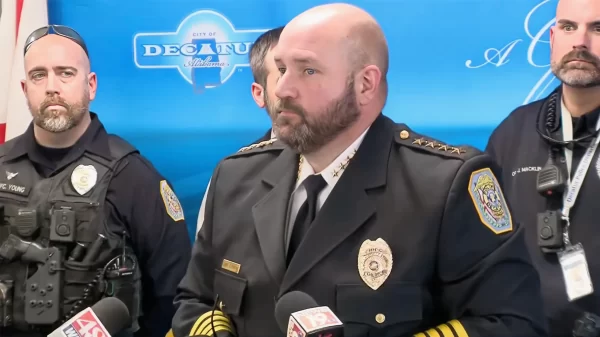As protests continue over the police shooting death of a Decatur man, a prominent local attorney said this weekend that police likely violated state law by assisting in an apparent vehicle repossession and the Decatur Police chief admitted that an initial statement released by police contained false information about the shooting.
Police shot and killed Stephen Perkins in the early morning hours of Sept. 29, as he stood in his front yard. Perkins had exited his home, allegedly carrying a firearm with a flashlight attached to it, to confront a tow truck driver who was attempting to repossess his truck. Security camera footage from neighboring homes show several police officers hiding around Perkins’ home, but never announcing their presence or attempting to make contact with Perkins.
Just after Perkins shouted for the tow truck driver to “put my truck down,” a Decatur Police officer, who had been hiding behind the side of Perkins’ home, shouted, “Hey! Hey! Police! Get on the groun…!” Before the sentence was complete, the officer began firing. He fired 18 shots, striking Perkins seven times.
Since that shooting, and with police and city officials providing little information, the public has relied on various security camera videos released by neighbors to get a clear understanding of what happened that evening. Two prominent questions have been at the forefront: 1. Why did the initial police statement say Perkins was ordered to drop his gun when it was clear from the videos that no such order was given; and 2. What were the police even doing there in the first place?
Shortly after Perkins was killed, DPD released a statement saying that “Officers on scene ordered the homeowner to drop his weapon, which he refused to do. It was at this time the homeowner turned the gun towards one of the officers on scene.”
Last week, 12 days after the shooting and that statement, Decatur Police Chief Todd Pinion released a new statement acknowledging that the initial press release contained “misinformation.”
“I also want to share that in our initial rush to release information to the public on the morning of September 29, we provided inaccurate information about the interaction between Mr. Perkins and the officer,” the statement from Pinion read. “Our news release and social media post indicated the officer ordered Mr. Stephen Perkins to drop his weapon before shooting. We now know the officer identified themselves as ‘police’ and ordered Mr. Perkins to ‘get on the ground’ prior to the officer firing rather than ordering him to drop the weapon at that time as we initially reported the morning of the shooting.
“That means that we also erred in stating Mr. Perkins ‘refused’ to drop his firearm prior to the shooting. I apologize for the inaccurate description of the encounter in our initial statement, and we have already taken steps to improve our public information sharing process.”
Neither the original DPD statement nor Pinion’s correction relays the fact that Perkins was given no opportunity to follow any DPD command prior the officer firing.
Police and city officials also have refused to address questions about why police were at Perkins’ home.
According to the initial statement from DPD, a tow truck driver called police to report that a homeowner threatened him with a gun while the driver was attempting to repossess an automobile. The statement said officers then returned to the scene with the driver.
But according to Decatur attorney Carl Cole, police are prohibited by state law from assisting with a repossession unless a court order is first obtained by the finance company. Cole said the towing company is within its rights to attempt to retrieve a vehicle, but Alabama law states that it cannot proceed if there is a “breach of the peace.”
There is no clear definition for “breach of the peace,” but case law accompanying the code shows that it can be as simple as a homeowner banging on the window of the tow truck or putting up any physical resistance. At that point, Cole said, the process should stop and the tow truck company or finance company should go through the courts. Only after a court order is issued can police be involved in the recovery of the vehicle.
That would appear to make all aspects of the repossession attempt of Perkins’ vehicle illegal or improper. His family also has stated that the entire repossession was in error and that financial records show he was up to date on his car payments.
Following Perkins’ shooting, as he lay dying in his front yard, the tow truck driver from All Star Recovery towed his truck away.













